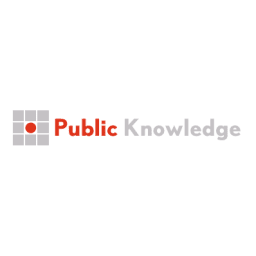Controlled Digital Lending: Public Knowledge Launches “Tell Congress to Let Libraries Fight Back” Campaign
UPDATED POST July 23, 2020: Internet Archive to Publishers: Drop ‘Needless’ Copyright Lawsuit and Work with Us (by Andrew Albanese, Publishers Weekly)
–END UPDATE–
From the Tell Congress… Website:
Today’s libraries must meet surging demand among their communities for access to ebooks, audiobooks, and other materials. It used to be the case that libraries could just purchase more copies of in-demand titles to meet their users’ needs. Today, libraries are kneecapped by extortionate ebook pricing, restrictive use terms, digital products that ‘self-destruct’ and force libraries to re-purchase them, and publishers who sue libraries that try to make their works available digitally.
[Clip]
Increasingly, libraries have begun making and lending out digital versions of physical works in their collections — a practice called Controlled Digital Lending, or CDL. CDL is a powerful tool to bridge the gap between print and electronic resources. CDL addresses the “20th Century Book Problem” where books published in the 20th century are generally unavailable in digital format, and it can also help to combat the spread of misinformation online. Under CDL, a digital copy of a physical book can only be read and used by one person at a time. Only one person can “borrow” an electronic book at once, and while it is being lent electronically, the library takes the physical book out of circulation.
Direct to Tell Congress… Website
More From an Internet Archive Blog Post:
“Many libraries are currently closed, and sadly it looks like they may be for months to come,” said John Bergmayer, Legal Director of Public Knowledge. “We need to make sure that libraries can continue serving their communities, not just during the pandemic, but after, as tightened budgets put the squeeze on library services and limit the scope of their collections.”
[Clip]
Public Knowledge acknowledges that the challenge extends beyond print materials. “Controlled Digital Lending makes it so that a library’s existing print collection is more useful, and can be accessed remotely,” explained Bergmayer. “But we also need to make sure that libraries can acquire digital-native books and other media under the same terms they have always operated under.”
Read the Complete Blog Post
Background: Controlled Digital Lending
- ControlledDigitallending.org
- Association of Research Libraries (ARL) and SPARC Sign Position Statement on Controlled Digital Lending (July 1, 2020)
- Position Statement on Controlled Digital Lending by Libraries Endorsed by Chief Officers of State Library Agencies (COSLA) (January 30, 2020)
- Libraries and Library Organizations Sign-On to “Controlled Digital Lending of Library Books” Position Statement (September 28, 2018)
- “A White Paper on Controlled Digital Lending of Library Books” & “Position Statement on Controlled Digital Lending” (September 28, 2018)
- Will ‘Controlled Digital Lending’ Spark the Next Big Copyright Lawsuit? (by Andrew Albanese, PW)
- The Implications of the ReDigi Decision for Libraries (by Jonathan Band, via ARL Policy Briefs)
Filed under: Academic Libraries, Associations and Organizations, Companies (Publishers/Vendors), Funding, Journal Articles, Libraries, News
About Gary Price
Gary Price (gprice@gmail.com) is a librarian, writer, consultant, and frequent conference speaker based in the Washington D.C. metro area. He earned his MLIS degree from Wayne State University in Detroit. Price has won several awards including the SLA Innovations in Technology Award and Alumnus of the Year from the Wayne St. University Library and Information Science Program. From 2006-2009 he was Director of Online Information Services at Ask.com.



